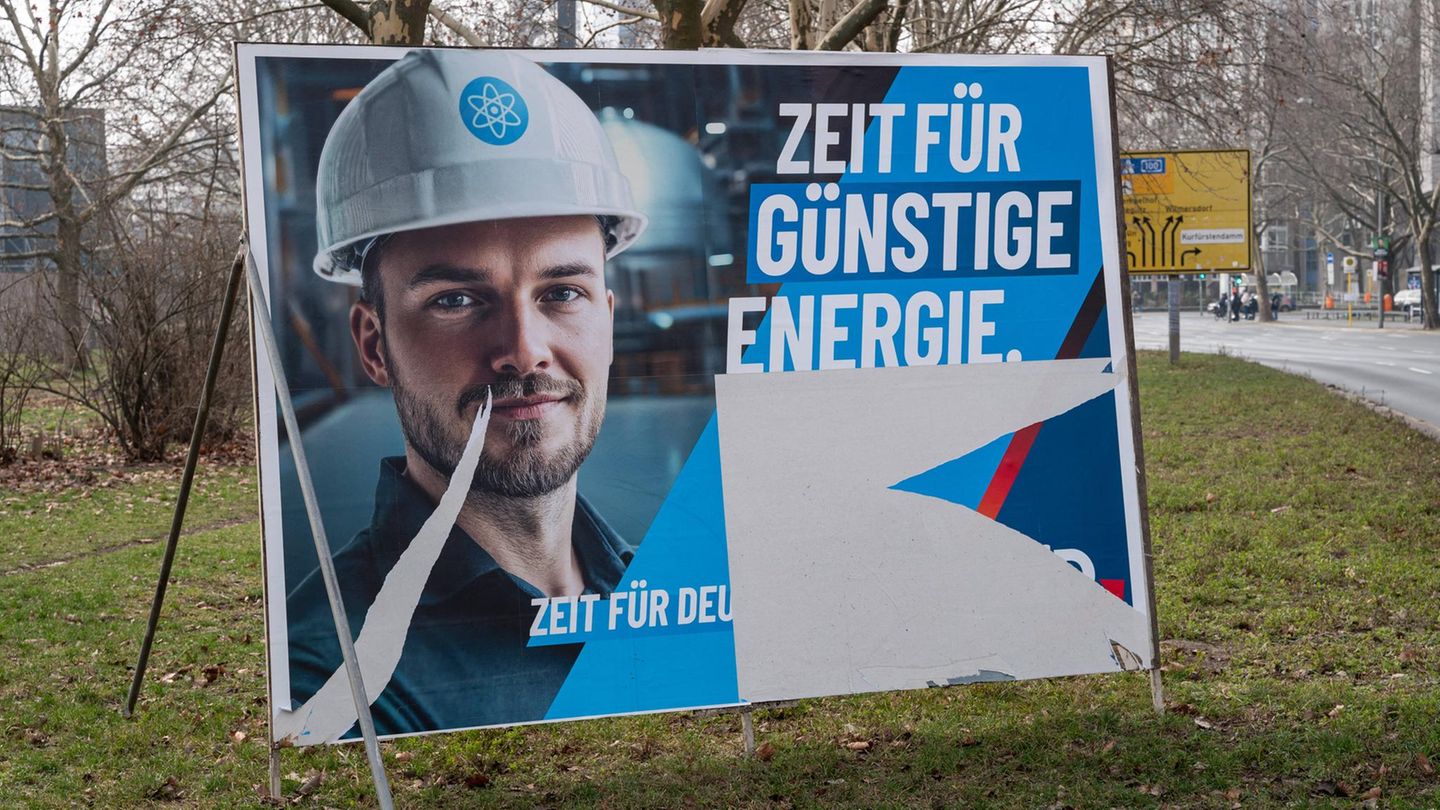Expert report
Is AfD’s economic policy harmful to Germany?
Copy the current link
Add to the memorial list
The AfD criticizes the industrial economic policy of the traffic lights. An expert opinion has now examined the party’s own ideas and warns that they would harm Germany.
The employer -related institute of the German Economy (IW) has created an expert opinion on the AfD economic policy. The scientists go hard with the party.
In the expert opinion entitled “Strong right-wing in Germany: Implications for the business location”, the experts present the effects for four subject areas: tax policy, European policy, security and transformation policy.
Effects of an AfD tax policy
In the evaluation of AfD tax policy, the IW refers to the party’s election program. The most extensive demands for tax cuts are anchored in this: 181 billion euros annually.
According to the experts, this alone would severely limit the state’s ability to act because tax revenue would be omitted. This applies all the more because the party calls for a massive increase in pensions to 70 percent of the last net income – including an enormous grant from federal tax funds to pension insurance.
The conclusion of the IW: The AfD’s income tax policy proposals are similar to those of an economic -libertarian party. Higher income should be relieved of weaker and lower incomes of weaker.
For a double earner family, this meant relief of almost 8,000 euros and 5.9 percent of gross income. For low-wage families, relief was also significantly lower. The AfD follows the motto “Downs in income, expenditure”, while for example that of the FDP “income, but also” also “.
Ideas on the continued existence of EU and euros
In its election program, the AfD calls for Germany to leave the euro currency system and the return to the D-Mark and questions the membership of the Federal Republic in the European Union (EU). According to the IW, a imitation of the Brexit would be expensive: after only five years, the cost of 5.6 percent of the real gross domestic product (GDP) – the equivalent of 690 billion euros – would amount to the cost of only five years; 2.5 million jobs would be omitted. A leaving from the euro has not yet been included.
According to IW, no other topic is viewed as critically as the European policy suggestions. 77 percent of corporate drivers in Germany rated the AfD strong as a risk “for the existence of the European Union and the Euro”. Only 3.4 percent would see this.
AfD plans in migration policy
The IW writes about the migration policy of the AfD: “Although the right wing party has so far only worked indirectly on migration policy, the coveted foreign specialists have an effect: Asked for the ‘acute operational effects’ of political development, almost half of the chief managers of Business associations ‘difficulties to gain specialists from abroad in AfD strongholds’. “
The crisis that is growing from demography can only be compensated for with foreign workers. Throughout Germany, the 6.7 million foreign employees generated 13.2 percent of gross value added – 3.4 percentage points alone were due to the foreign employees since 2018.
If you add the upstream and downstream impulses of these activities, the economic importance even increases to 16.9 percent (648 billion euros). The increase in employment subject to social security contributions in East Germany would not have been possible in recent years without immigration from third countries, according to the IW.
Implications for securing skilled workers
In its election program, the AfD denies man -made climate change and turns against climate policy. As an energy policy offer, it combines wind turbine reduction, nuclear energy recovery and Nordstream-II repair with tax and tax relief-the answer, as she wants to enforce this in coalitions and against resistance, remains guilty, the IW remains guilty .
According to the experts, the energy policy AfD offer does not cordon them with companies: For 67.2 percent, long-term strengthening of the party is a risk of transformation policy; Only seven percent regarded it as an opportunity. From the economy, the party in school grades for its energy policy is punished on average with a smooth “poor” (5.0).
Source: Stern





